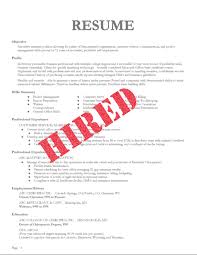As a telecom professional, you have many skills and expertise that you can offer to a company. So, how do you showcase this before meeting your potential employer? The answer lies in your resume and cover letter.
Your cover letter sells the benefits of hiring you. Your resume sells the features you come with. Your first professional impression is down to these two documents; make sure they’re in both in tip-top shape.
Great cover letters showcase your personality and passion and describe what makes you a uniquely qualified candidate. Use these tips and tools to create a cover letter that increases the chances your resume will be read.
- Don’t send correspondence “To Whom It May Concern”. Find out who will review your cover letter and resume and send it to them directly
- Tailor your cover letter to the company and the job you’re after. Generic doesn’t work and won’t catch a recruiter’s eye
- Figure out how the position you’re applying to can solve a problem. Then match your letter to those requirements.
- As an example: The company might need specific expertise or experience or they may need to improve their customer satisfaction metrics. How can you help?
- List the specific job requirements and your matching qualifications in side-by-side columns so that the HR person can quickly see that you have what this job takes
- Sell yourself as the solution:
Describe the benefits of hiring you
Explain how you’re qualified to solve the problem
Include your years of experience relative to the position and your most recent job in the field
Be confident, factual, and positive
- Talk about what you can do, not what you have done. A recruiter can see your resume for more detail on your experience, education, and accomplishments
- Keep it short and simple. Use bullet points whenever possible. And never go over one page in length
- Ask for an interview
- Sign the letter and make sure to proofread
- DON’T CALL or send duplicate resumes. This won’t gain you any points. It may actually give recruiters a reason to disqualify you
Your resume is your best sales tool and gives you an opportunity to solve an employer’s problems. Done well, it can make you an indispensable solution to the company’s needs. Follow these resume do’s and don’ts to ensure you look like high quality telecom candidate.
DOs
- Keep it simple and easy to read
- Bullet points: use them whenever possible
- Grammar and spelling: make sure they are perfect. Employers have a rule: “If there’s a typo, throw it out.”
- If you have less than five years’ work experience, limit your resume to one page
- Specific skills. This is not a market for generalists; note the specific skill set you will bring to the business
- Key words; this includes technical terms and expertise (hardware and software in which you are proficient), job titles, certifications, names of products and services, industry buzzwords and jargon, types of degrees, company names. In the following examples, keywords are underlined:
Supported maintenance and repair of switches, special circuits and pair gain equipment
Deployed Cisco routers, LAN/WAN and network management products
Coordinated installation dates facility assignments
Prepared Premises Installer daily log sheets
- Education and experience. If you are applying for your first job, list education at the top. Otherwise, experience precedes education
- Employment history; your most recent employment goes first. List the name of the company with a short description, the city and state, the position/title held, and the dates (month and year)
- List promotion and dates for each position
- Make sure you’re a fit. Think about the company’s business culture. For example, a non-union company won’t be impressed if you flaunt your union credentials. It scares them. And the opposite can also be true
- Profession organisations and awards. Include professional organisation/association memberships and any positions you held. List your professional accomplishments – awards, certifications, honours etc.
- Your email and voicemail. Use a professional sounding email address and voice mail and be sure to check them often
DON’Ts
- Don’t include a photo or personal information – height, weight, age, for example
- Do not use an objective/summary unless you have many years of experience
- Never hand-write any information on your resume
- Don’t send your resume to more than one person at a firm/division and never send a gift/toy
- Don’t use coloured paper – it doesn’t scan or fax well
- Don’t include references on your resume
If you follow our steps to success, you are guaranteed to present yourself as a high quality candidate and an experienced telecom professional that any organisation would want in their team.



